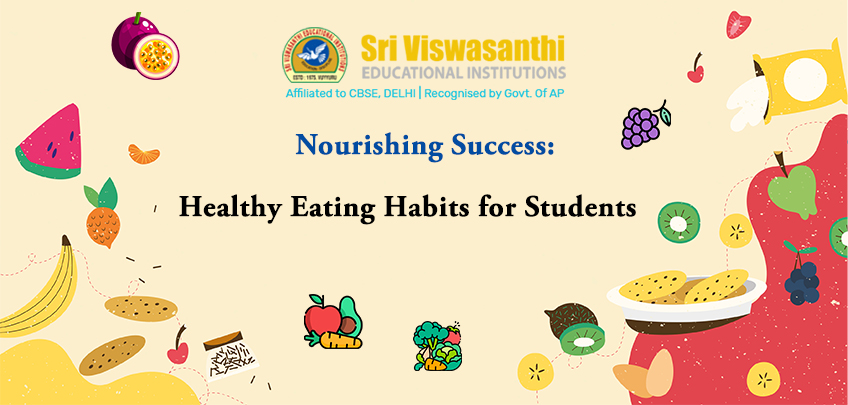

Nutrition plays a pivotal role in a student's academic journey. The foods you consume not only affect your physical health but also impact your cognitive function, concentration, and energy levels.
In this blog post, we'll delve into the crucial connection between nutrition and academic performance, offering practical tips for students to establish and maintain healthy eating habits.
Balanced Diet, Enhanced Focus
A well-balanced diet provides essential nutrients that support cognitive function and concentration. Nutrient-rich foods, such as fruits, vegetables, whole grains, and lean proteins, supply the brain with the energy and nutrients it needs to function optimally.
The Importance of Breakfast
Breakfast is often referred to as the most important meal of the day for a reason. It kickstarts your metabolism and provides vital energy for your morning classes. Opt for a balanced breakfast that includes complex carbohydrates and protein.
Fruits and Vegetables
Include a variety of colorful fruits and vegetables in your daily meals. They are rich in vitamins, minerals, and antioxidants that support brain health. Aim to fill half your plate with fruits and veggies.
Whole Grains
Choose whole grains over refined grains whenever possible. Whole grains, such as brown rice, whole wheat pasta, and oats, provide sustained energy and improve cognitive function.
Lean Proteins
Incorporate lean protein sources like poultry, fish, beans, and tofu into your diet. Protein helps maintain alertness and focus.
Healthy Fats
Omega-3 fatty acids, found in fatty fish like salmon and walnuts, are known for their cognitive benefits. Include healthy fats in your diet to support brain health.
Stay Hydrated
Dehydration can impair cognitive function and concentration. Make it a habit to drink water throughout the day, and carry a reusable water bottle to stay hydrated during classes.
Limit Sugary Drinks
Reduce or eliminate sugary beverages like soda and energy drinks from your diet. These drinks can lead to energy crashes and hinder focus.
Smart Snacking
Nutrient-Packed Snacks - Choose nutrient-packed snacks over empty-calorie options, a handful of nuts and seeds.
Mindful Snacking - Pay attention to portion sizes when snacking. Avoid mindless munching in front of screens, as it can lead to overeating.
Mindful Eating
Practice mindful eating by paying attention to your body's hunger and fullness cues. Avoid eating out of stress or boredom, which can lead to overeating.
Balanced Diet, Balanced Life
Balance is key. Don't eliminate your favorite treats altogether. Enjoy them in moderation to maintain a healthy relationship with food.
Conclusion: Fueling Success
Healthy eating habits are fundamental to academic success. By embracing a balanced diet rich in fruits, vegetables, whole grains, lean proteins, and healthy fats, staying hydrated, making smart snack choices, planning and prepping meals, avoiding overeating, and seeking nutritional guidance when needed, students can nourish their bodies and minds for educational excellence.